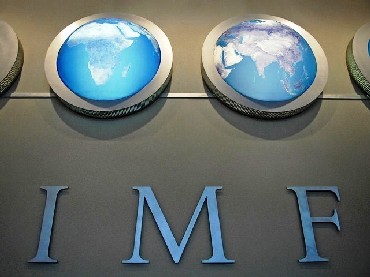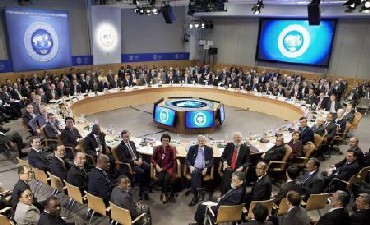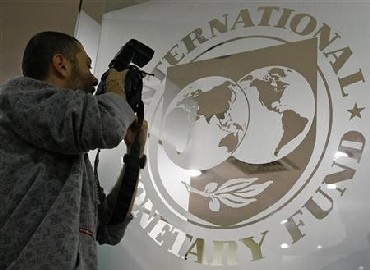 | « Back to article | Print this article |
The truth behind IMF's ideological bias
As expected, Christine Lagarde of France has been appointed as managing director of the International Monetary Fund (IMF).
The question is whether this would mean any change in IMF's policies, particularly on the question of what to forgo out of the impossible trinity of an independent monetary policy, managed exchange rates and a liberal capital account.
Earlier, I had argued that IMF's policies seem too subservient to the market fundamentalist ideology that has been prevalent in Washington over the last three decades.
The suspicion of an ideological bias in IMF's research and policy stances is now confirmed by two reports of the IMF's Independent Evaluation Office (IEO) in the current year.
Click NEXT to read more...
The truth behind IMF's ideological bias
The first one is titled "IMF Performance in the Run-Up to the Financial and Economic Crisis, IMF Surveillance in 2004-07" (January 10).
To quote from it, "The IMF's ability to correctly identify the mounting risks was hindered by a high degree of groupthink, intellectual capture, a general mindset that a major financial crisis in large advanced economies was unlikely, and inadequate analytical approaches."
Another, titled Bilateral Surveillance of the United States: Sanguine on Financial Innovation and Behind the Curve on Risks, the IEO quotes from the IMF surveillance reports:
Financial soundness: "Core commercial and investment banks are in a sound financial position, and systemic risks appear low. Profitability and capital adequacy of the banking system are high by international standards despite a recent uptick following sub-prime difficulties, market measures of default risk have remained benign" (2007).
Innovation and risk: "[The credit rating agents were] uniquely positioned to assess a wide range of structured transactions" (2006).
Click NEXT to read more...
The truth behind IMF's ideological bias
"it would appear that innovation has supported financial system soundness. New risk transfer markets have facilitated the dispersion of credit risk from a core where moral hazard is concentrated to a periphery where market discipline is the chief restraint on risk-taking. The conduit mechanism, in turn, has facilitated broader credit extension-with the important qualitative nuance that much of the recent credit growth has reflected lending to new, previously excluded borrowers, as opposed to 'more money thrown at the same people'."
Regulation: "The U.S. financial sector remains resilient and well regulated" (2005) .
"The key to innovation has been that market forces have been allowed to operate. The regulatory philosophy has emphasised selectivity in the application of safety-and-soundness oversight with the Fed serving a singular role as guardian against more dirigiste temptations. A growing array of financial institutions has been made to function without the props and constraints of prudential norms and the counsel and intrusion of examiners, and many have become laboratories of innovation" (2007).
Click NEXT to read more...
The truth behind IMF's ideological bias
Financial innovation and capital flows: " while deep, liquid, and innovative U.S. fixed income markets should continue to attract foreign capital, they will have to carry on innovating more rapidly than other financial centers to retain a relative advantage" (2007)."
(It is worth reminding ourselves that these views echo those of Alan Greenspan, the regulator of the US system, Ayn Rand's chela, ideologically opposed to all regulation.)
To quote: Iceland "Serious doubts about the health and viability of Iceland's three largest private banks were being raised by investment banks and a Board member, who at the Article IV discussion remarked that Iceland essentially was functioning like a hedge fund, borrowing abroad to acquire foreign assets, adding that Iceland's high leverage posed a risk to the financial system. But these views did not impact IMF surveillance."
Click NEXT to read more...
The truth behind IMF's ideological bias
It seems that, to quote from the report proper, "Staff reported that incentives were geared toward conforming with prevailing IMF views. Several senior staff members felt that expressing strong contrarian views could 'ruin one's career'. Thus, views tended to 'gravitate toward the middle' and 'our advice becomes procyclical.' Staff saw that conforming assessments were not penalised, even if proven faulty."
A long time ago, Keynes had described the phenomenon beautifully while commenting on financial markets.
He said it is much better for one's reputation to be wrong in the company of others than taking a contrarian stance. Have IMF staff been reduced to being punters in the financial markets?
Click NEXT to read more...
The truth behind IMF's ideological bias
The latest IEO Report (May 20, 2011), "Research at the IMF: Relevance and Utilisation" makes the point equally bluntly. To quote from it, "there is a widely held perception that IMF research is message driven. About half of the authorities held this view, and more than half of the staff indicated that they felt pressure to align their conclusions with IMF policies and positions.
Policy recommendations provided in some research publications did not follow from the research results number of country authorities and researchers noted that IMF research tended to follow a pre-set view with predictable conclusions that did not allow for alternative perspectives."
Any more comment would be superfluous. Our authorities need to be far more cautious in accepting what Washington advocates on the virtue of market-determined exchange rates as the gospel truth.






